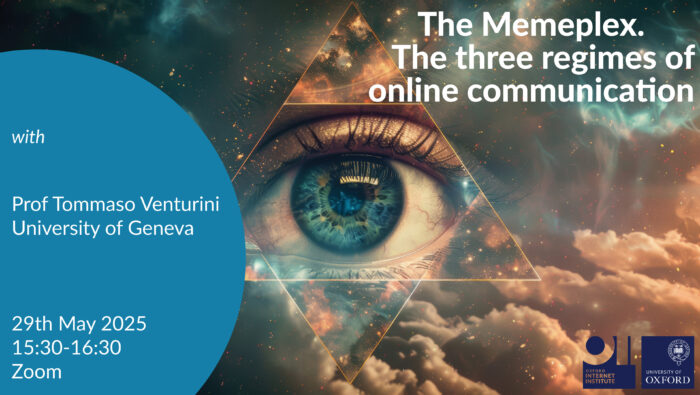15:30 - 16:30,
Thursday 29 May, 2025
Zoom

About
In this presentation, I will discuss the “New World Order” super-conspiracy theory to illustrate why it is so difficult to make sense of contemporary digital communication. I will argue that conspiratorial subcultures develop online through the overlap of three different by interfeering communication regime: the regime of hypertexts (which corresponds to conspiracy theories), the regime of feeds (which corresponds to conspiracy influence networks, and the regime of memes (which corresponds to conspiracy meme complexes or ‘memeplexes’).
Tommaso Venturini is associate professor at the Medialab of the University of Geneva, researcher at the CNRS Centre for Internet and Society, and founder of the Public Data Lab.
In 2017 and 2018, Tommaso has been researcher at the École Normale Supérieure of Lyon and recipient of the “Advanced Research” fellowship of the French Institute for Research in Computer Science and Automation.
In 2016, he has been “digital methods lecturer” at the Department of Digital Humanities of King’s College London. From 2009 to 2015, he has coordinated the research activities of the médialab of Sciences Po Paris.
Speaker

Prof Tommaso Venturini
Associate Professor at the Medialab , University of Geneva
Researcher at CNRS Centre for Internet & Society & founder of the Public Data Lab. He received the “Advanced Research” fellowship of the French Institute for Research in Computer Science & Automation